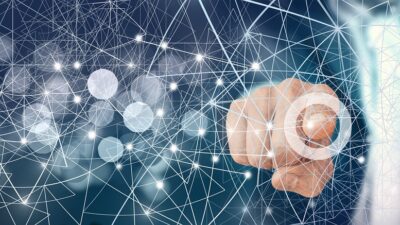As we plunge deeper into the 21st century, artificial intelligence (AI) emerges as both a driving force and a disruptor in various sectors, particularly in technology careers. The interplay between human innovation and machine learning redefines how we approach work, create value, and envision our professional futures. Understanding the nuances of this transformation is crucial for both current and aspiring tech professionals.
The Rise of AI in the Workplace
AI technologies—ranging from machine learning algorithms to sophisticated natural language processing—are revolutionizing how tasks are performed. Automation has been at the forefront, streamlining repetitive tasks and freeing up human workers to engage in more complex, creative endeavors. In tech careers, this transition aids not only in efficiency but also in fostering innovation.
Embracing AI allows companies to tap into vast datasets, glean insights previously unattainable, and create tailored solutions at an accelerated pace. While this has significant advantages, it also raises questions about job security and the skills required in the modern workforce.
Emerging Job Roles and Changing Skill Sets
The manifestation of AI in the workplace is leading to the emergence of new job roles that didn’t exist a decade ago. Positions like AI Ethics Specialist, Data Scientist, and AI Trainer are in growing demand. Even traditional roles, such as software developers and system analysts, are evolving as they incorporate AI tools and techniques into their workflows.
Upskilling and Reskilling
For tech professionals, the focus is shifting from merely obtaining technical skills to embracing a mindset of lifelong learning. Upskilling—gaining additional skills to enhance one’s current role—and reskilling—learning entirely new skill sets—are becoming essential strategies for career survival and advancement. Professionals who can navigate AI technologies and harness their capabilities will distinguish themselves in the job market.
Skills such as data analysis, machine learning, and an understanding of AI ethics are increasingly sought after. Moreover, soft skills like creativity, problem-solving, and adaptability are becoming equally important as they enable professionals to collaborate effectively with AI systems and leverage them for innovative solutions.
Collaboration Between Humans and AI
Rather than viewing AI purely as a replacement for human labor, the future of work promotes the idea of collaboration. AI can augment human capabilities, leading to a more effective partnership between technology and humans. For instance, AI can analyze data trends, allowing human professionals to focus on strategic planning and decision-making.
This collaborative future underscores the importance of fostering an organizational culture of continuous improvement and innovation. Teams that integrate AI into their workflows can achieve heightened creativity and effectiveness, ultimately leading to superior products and services.
Challenges and Ethical Considerations
While the technological advancements brought about by AI offer exciting opportunities, they also present challenges. Issues related to data privacy, bias in algorithms, and the ethical implications of automated decision-making necessitate a nuanced approach. Professionals in tech careers must shoulder the responsibility of ensuring that AI technologies are developed and utilized in an ethical manner.
There’s also the concern of job displacement. As AI capabilities advance, some roles may become obsolete. It’s essential for industry leaders to develop strategies that mitigate these risks, such as transition programs for affected workers and pathways for new job creation in emergent sectors.
Conclusion
The transformation wrought by AI in the tech landscape is both exhilarating and daunting. As it reshapes career trajectories, it demands a proactive approach from professionals eager to thrive in this dynamic environment. Embracing lifelong learning, fostering collaboration between humans and machines, and adhering to ethical standards will be key. Ultimately, the future of work in tech will be defined by those who not only adapt to change but also drive it, harnessing the power of AI to broaden horizons and tackle new challenges head-on.
In this rapidly evolving age, the only constant is change. Preparing for it today means unlocking the potential of tomorrow.



